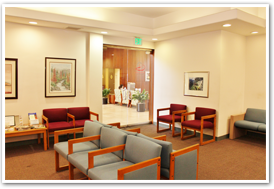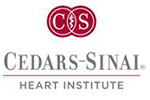We are conveniently located in West Hills, CA


You have received a: BARE METAL STENT DRUG ELUTING STENT
Any time a foreign object is placed in the blood stream, there is a risk for clot formation. Normally, once scar tissue is formed around the stent, that risk is very low. Drug eluting stents slow the growth of scar tissue, and hence, the time period you are at risk for blood clots in the heart is longer. A blood clot in the artery to the heart starves the heart of oxygen and leads to a heart attack, and usually if it happens to an artery with a stent it is a major heart attack with great potential for cardiac failure or death.
For this reason, it is extremely important that you take your blood thinners as prescribed. We use two blood thinners, full dose aspirin (325 mg) and plavix/clopidogrel (75mg). For the duration of your therapy with these drugs, you MUST take them every day. Missing even a SINGLE pill can lead to blood clots and a major heart attack. If you are running out of these medications, you MUST call ahead with sufficient time to get a refill. If you are traveling, you MUST carry sufficient quantity (plus an emergency supply). If anyone advises you to stop these medications, even another doctor or dentist, you must call us first.
Your duration of aspirin and plavix therapy: 6 WKS 1 YR LIFETIME
In addition to the concerns after an angiogram (see the other page), the fact that we have worked on your heart carries its own potential set of additional risks and complications:
- Some patients may have chest pain for the first 24 hours or so after a stent. However, if you have ANY chest pain after discharge, you must call us immediately. For anything more than very mild chest pain, you must be seen in an emergency room immediately.
- Any symptoms similar to your previous "heart" symptoms (the symptoms this was meant to fix) should prompt a call to us, or a visit to the emergency department.
- Please call us or go to the emergency room if you have any unexplained shortness of breath or leg swelling as that may indicate you are developing serious lung or bloodstream complications.
Most patients can return to light duty work about 3-4 days after a PCI. If your work is more vigorous, please discuss it with me for individual recommendations.
About a day after discharge, you can start with minimal activity (going shopping with someone, etc.). I do not recommend vigorous exercise, or any exercise regimen, for at least two weeks. After two weeks, you may slowly resume your previous exercise regimen with the goal of being back to where you were before the PCI no sooner than a month. If you hadn't been exercising, don't start for at least a month.
As with most things, it is important to "let your body be your guide". If something feels like it may be too much for you or your heart, it probably is. Stop.







